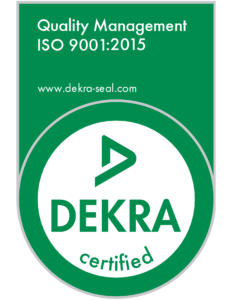Article Category: Ultrasonic Welding
- Home
- Knowledge Base
- Ultrasonic Welding
Ultrasonic Welding
Maintenance
1 ArticleUltrasonic Tooling
24 ArticlesMaterials and Design
3 ArticlesUltrasonic Techniques
6 ArticlesUltrasonic Joint Design
2 ArticlesUltrasonic Process Control
23 ArticlesWhat are the advantages of using a higher frequency for Ultrasonic welding?
As the frequency increases, vibration amplitude typically decreases. There are three advantages of using a higher frequency for Ultrasonic welding.
What types of plastic polymers are ultrasonically weldable?
Ultrasonic welding is a versatile process that can be used to weld many different types of plastic polymers. The weldability...
What frequencies are available in ultrasonic systems?
There are several different ultrasonic frequencies that can be used for plastic welding. The frequency is usually determined by the specific application.
What ultrasonic welding systems are available?
There are several types of ultrasonic systems that are available. For more information on any of these systems please contact us.
What is peak to peak value in ultrasonic welding?
Peak to peak value is the measure of amplitude in units of microns. It is the distance from the upper and lower peaks of the ultrasonic wavelength.
What is Hertz or Hz in ultrasonic welding?
Hertz or Hz in ultrasonic welding refers to the number of cycles per second. Ultrasonic waves are measured in kHz (kilohertz) or thousands of cycles per second.
What is frequency in ultrasonic welding?
Frequency within the scope of ultrasonic welding refers to the number of vibrations per second that the ultrasonic stack can produce.
What is an energy director in ultrasonic welding?
An energy director is a design feature used in ultrasonic welding to facilitate the welding process by focusing and directing...
Welding Amorphous vs. Semi-Crystalline Plastics
Amorphous vs. Semi-crystalline are two types of plastics that should bear full scrutiny and research early on in the product design phase, which will avoid costly pitfalls once you get to the manufacturing process.
What is amplitude in ultrasonic welding?
Amplitude is one of the most important variables within any ultrasonic application. The amplitude created by a system is a factor of the hardware of that system.
Welding Thermoplastics vs. Thermoset Plastics
The decision to use either Thermoset Plastics or Thermoplastics is not as simple as it seems when it comes to ultrasonic welding of plastic parts.
Knowledge Base Categories
- Ultrasonic Welding
- Ultrasonic Transducer
- Ultrasonic Transducer
- Ultrasonic Tooling
- Ultrasonic Techniques
- Ultrasonic Staking
- Ultrasonic Process Optimization
- Ultrasonic Process Control
- Ultrasonic Joint Design
- Ultrasonic Horns
- Ultrasonic Boosters
- Spin Welding
- Materials and Design
- Material Selection
- Maintenance
- Infrared Welding
- Heat Staking
- Gluing and Solvent Bonding
- Assembly Methods
Contact Info
- Monday - Friday
8:00 AM - 4:00 PM ET - 321-622-8584
- 3153 Skyway Circle, Melbourne, FL 32934
- [email protected]
Registrations
UEI ID: Z6T3GLT5YFZ9
CAGE Code: 8B6Y5
DUNS #: 105213696
NAICS Codes: 339999
ISO 9001:2015 Certified

© 2025 Trinetics Group. All Rights Reserved
